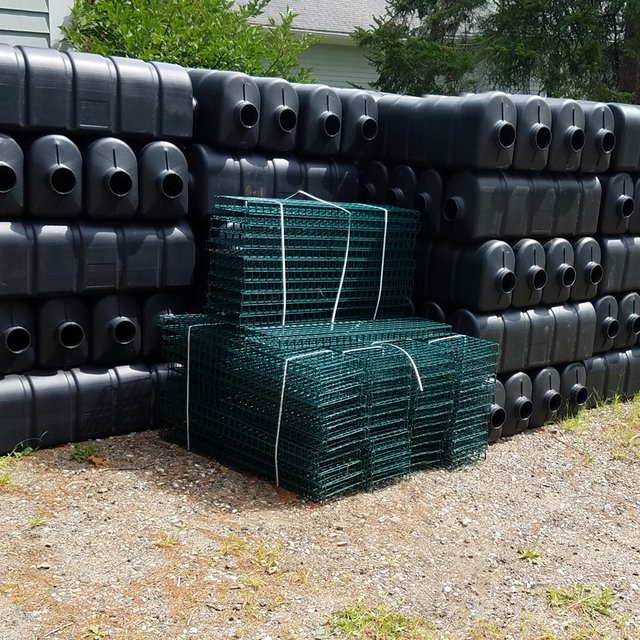“We got this till we don’t got this,” shouted Cameron as we raced back toward the boat launch, praying we had enough water to haul out our skiff. The stakes were high that evening. We had fresh oysters to deliver and young kiddos to pick up at daycare. It was a classic rookie mistake - mismanaging the tides like that - but those fateful words have endured and inspired us to embrace failure as an opportunity to learn and grow. It is a mindset that has helped us stay humble and hungry and hold a course of continual improvement. We certainly made a lot of rookie mistakes in the beginning and hope these lessons help give you a head start.
Rookie Lesson #1 - Be a Farmer First.
When we were starting out, every idea was a brilliant one, a profitable one, a worthy one. We spent a considerable amount of time on our website, licensed merchandise, and the notion of vertical integration before we even had a product. The lesson learned was to pick one thing and do it well. Farming is risk management. It is connecting deeply to nature and making routine observations of the creatures in your care and their surrounding ecosystem to minimize stress, disease, and mortality. Turns out this is a lot of work and translates directly to the bottom line. That other fun stuff should come second.
Rookie Lesson #2 - Invest in a Sorter.
Hand culling, the process of sorting oysters into like sizes by hand, takes a lot of time, a lot of labor, and thus is a very inefficient way to run an oyster business. The alternative is either purchasing or building a sorting machine which can do the same work in far less time and less human error. Either option is a hefty investment upfront, but (now that we have a sorter) we literally cannot imagine our business without it.
Rookie Lesson #3 - Don’t Overthink It.
We grow our oysters in floating cages, which allow us to mitigate the adverse effects of biofouling by flipping our cages weekly into the drying position. This was a real leap of faith at first, leaving our oysters out of the water overnight, but we learned this technological innovation, however rudimentary, works quite well. There are other ways to deal with biofouling, like scrubbing, scraping, and powerwashing, but they are far less efficient. Sometimes the simplest solution is the most elegant. Take those shortcuts when Mother Nature hands them to you.
Rookie Lesson #4 - Map Out your Financials.
We started Love Point Oysters to make the world a better place, and while this is a noble pursuit, it is not much more than a hobby without profitability. In fact tax law dictates this! But these two notions need not be mutually exclusive. They can and should coexist, and the greater the economic engine the greater the impact. It is so easy to fall into a false sense of security doing what we like to call “oyster math” - multiplying the oysters in your care by a dollar a piece, underestimating your cost, and planning to pocket the rest. Our first financial model, however rough it was, changed the game for us. Without it, we really didn’t really have a concrete plan to move forward, and we are still pretty amazed at how it continues to shape our decisions.
We hope these lessons are helpful, and if you’re still reading and wondering if you should start a business in aquaculture, just remember - you got this till you don’t got this!
Case studies are authored by industry members at the request of The Maine Aquaculturist. Authors are selected based on experience and expertise in a key business aspect of aquaculture. See our About page for more information.

